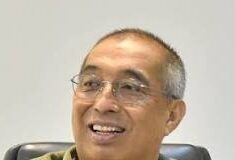By Lesaya L Sorudim7
KOTA KINABALU: As the Sabah State Election enters its decisive 48-hour sprint, the political battlefield in the Kadazan Dusun Murut and Rungus (KDMR) region has transformed into a concentrated contest of narratives, identity, and endurance.
While most coalitions and parties have spent weeks trying to define the “soul” of this election, it is only now—when the campaign noise reaches its highest pitch—that the real fault lines emerge.
The KDMR belt, long regarded as Sabah’s moral compass in moments of political uncertainty, is once again the arena where power can shift in unexpected ways.
GRS-PBS enters these final days with the advantage of machinery, logistics, and a well-oiled ground network that only incumbency can offer.
Yet, in a political climate that has grown weary of power imbalance, resources alone are no longer a guarantee of comfort.
Across the villages and interior pockets of the KDMR heartland, UPKO, STAR, Warisan, PKDM, and several smaller local movements are pushing forward not with fleets of vehicles or waves of banners, but with an unfiltered determination.
Their greatest asset is not the physical presence of manpower but the emotional presence of a “wind of change”—a sentiment silently growing in homestays, tamu markets, church gatherings, and among younger voters returning to their kampung to vote.
But nowhere is this electoral storm more delicately balanced than in Tamparuli and Kiulu, two seats that have become symbolic microcosms of the KDMR struggle.
Here, UPKO, GRS-PBS, and PKDM appear to be approaching the finish line neck-and-neck, each with a different weapon in hand.
UPKO, reinventing itself after several political cycles of reinvention, has found unexpected traction among voters who feel their rights and state identity have been diluted by legal manoeuvres and federal decisions.
Their narrative of “defending Sabah’s dignity” resonates strongly, especially where memories of past political injustices remain fresh.
GRS-PBS counters with stability and continuity, banking on local incumbents’ visibility and the argument that development comes faster when one owns both the tools and the blueprint.
Their pitch is straightforward: development requires power, and power requires unity.
PKDM, meanwhile, is the disruptor—appealing especially to younger KDMR voters and disgruntled local leaders who no longer wish to choose between the two “traditional” political camps. PKDM’s story is one of localist pride: a Sabah for Sabahans, shaped by Sabahans.
What makes Tamparuli and Kiulu particularly fascinating is that all three fronts have succeeded in carving out a core base—none dominant enough to secure early certainty, yet each strong enough to deny the others an easy victory.
Political observers on the ground note that the difference between winning and losing in these constituencies may ultimately come down to a few hundred votes, perhaps even fewer.
In coffee shops from Tenghilan to Pekan Tamparuli, one hears a political mood that is quiet, cautious, and unpredictable. Voters—especially among the Kadazan Dusun and Rungus communities—are keeping their preferences close, unwilling to fully commit until the final moment.
Many speak of a desire for change, yet also of a fear that abrupt change could strain local development. This duality explains why no party has managed to break ahead in a meaningful way.
The final two days of this campaign will therefore be less about rallies or fiery speeches, and more about quiet persuasion: door-to-door visits, last-minute family discussions, and the subtle recalibration of loyalties. In the KDMR cultural context, where consensus often forms at the last possible moment, this window is critical.
Regardless of who emerges victorious, one thing appears certain—the winner in Tamparuli and Kiulu will not claim a landslide.
They will win by inches, not miles; by narrow majorities, not sweeping mandates. And in that slim margin lies a deeper message for Sabah’s political future: the KDMR voter is no longer passive, no longer predictable, and no longer willing to give any party a blank cheque.
The election may be contested by parties, but the final verdict belongs—decisively and unambiguously—to the people at the heart of the KDMR hills.


